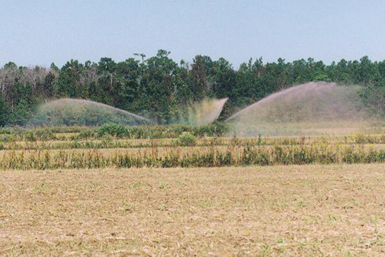
The Environmental Protection Agency has agreed to investigate “the discriminatory impact of pollution and adverse health risks, including premature death, that industrial hog operations impose on Black and Latino communities in North Carolina,” the Southern Environmental Law Center announced Friday.
The civil rights complaint alleges the North Carolina Department of Environmental Quality discriminated against Black, Latino and Native American residents of Duplin and Sampson counties on March 31, 2021, when the state agency issued three individual swine animal waste management system permits and one certificate of coverage, which authorizes the construction and operation of anaerobic digestion animal waste treatment systems to produce renewable energy, according to EPA Director of External Civil Rights Compliance Office and Office of General Counsel Lilian Dorka’s Jan. 13 response to the law center’s complaint.
Supporter Spotlight
The law center filed the complaint on behalf of the Duplin County Branch of the North Carolina State Conference of the NAACP and the North Carolina Poor People’s Campaign.
“We are excited that the EPA decided to investigate this complaint. As a ‘watch dog’ for those most negatively impacted by the hog industry, we consider the investigation of this complaint as a step in the right direction. Nevertheless, we also understand that there is much more work to be done,” Duplin County NAACP Chapter President Robert Moore said in a statement.
The complaint alleged that the permits issued by NCDEQ allowing “four Smithfield-owned hog operations to use cesspits full of hog waste and sprayfields to produce energy, failed to protect the surrounding communities from air and water pollution. A disproportionate share of the hundreds of families who live around these hog operations are Black and Latino.”
The EPA committed to investigating whether NCDEQ discriminated on the basis of race and national origin against the residents of Duplin and Sampson counties by issuing the permits and whether the department complied with general nondiscrimination obligations.
“EPA’s decision to investigate the disproportionate impacts of these permits on North Carolina’s poor and communities of color is crucial in maintaining robust commitments to environmental justice in our state. Real solutions to our climate crisis must serve all communities, including the most vulnerable. We look forward to EPA’s findings,” said William Barber, III with the NC Poor People’s Campaign.
Supporter Spotlight
NCDEQ is currently developing a general permit for industrial hog operations to install lagoon covers and produce biogas, which the law center said would allow harmful projects with minimal scrutiny by the public.
“We are pleased that EPA will investigate how DEQ’s failure to require common-sense measures to limit pollution is impacting families in Duplin and Sampson counties,” said Blakely Hildebrand of the Southern Environmental Law Center, in a statement. “We hope that DEQ can quickly correct its course and protect communities near industrial hog operations as it develops a new general permit for hog operations that produce biogas.”
Sharon Martin, NCDEQ’s Public Affairs deputy secretary, told Coastal Review Friday that the state agency is reviewing the EPA letter.
“DEQ is committed to the fair treatment and meaningful involvement of all North Carolinians and we have given significant priority to compliance with Title VI requirements, particularly with regard to animal waste permitting,” she said.
Roy Lee Lindsey, CEO of the North Carolina Pork Council, which represents the state’s pork industry, told Coastal Review that the farms in question were working toward environmental improvements and that the action indicates no discrimination.
“A previous civil rights complaint against DEQ was settled with no finding of discrimination with regard to the permitting of North Carolina hog farms. It is surprising that these four farms are now under attack for trying to make environmental improvements on their farms. We are confident that when the facts of this complaint are reviewed, the result will be the same and there will be no finding of discrimination,” Lindsey said in a statement. “By the EPA’s own declaration, all that is necessary for a complaint to be investigated is to file it in writing, to file it with a certain number of days, to allege there was discrimination, and to file it against an entity that received federal dollars. The letter itself acknowledges that it is not a finding of discrimination — merely that the complainant checked enough boxes to open an investigation.”







